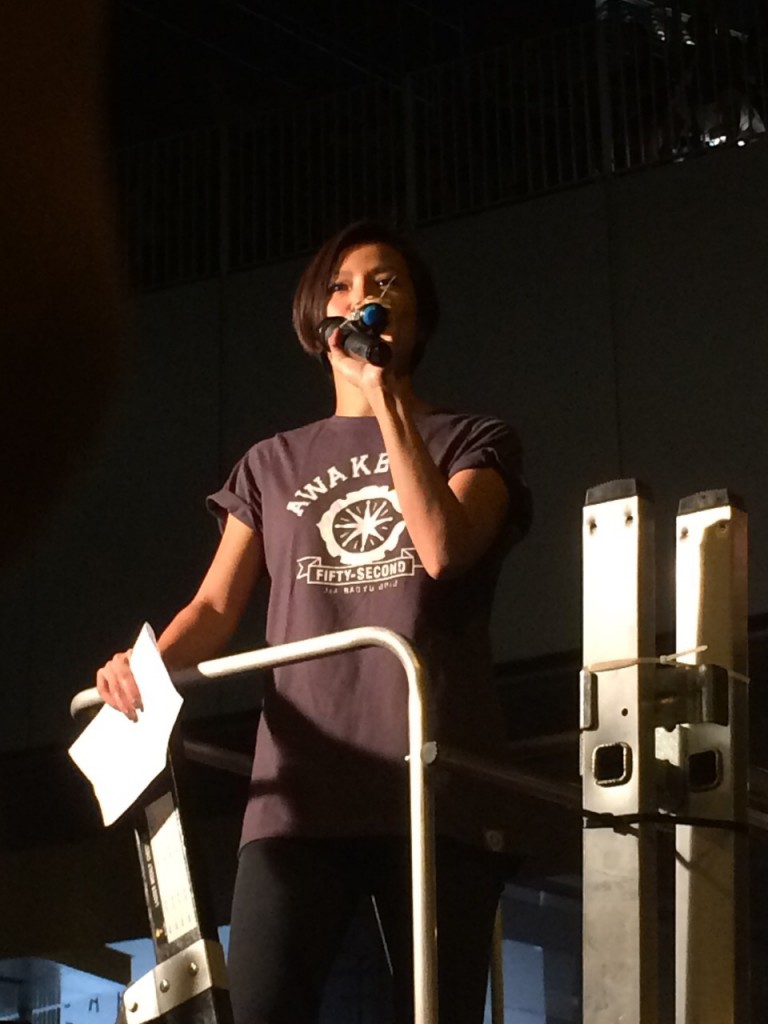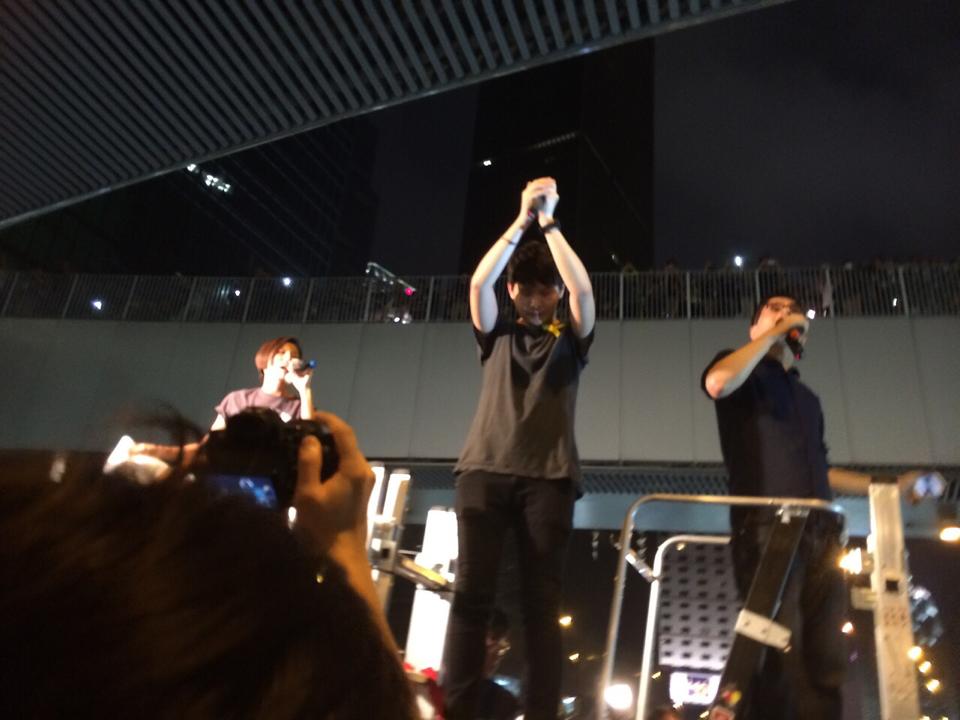Local celebrities take bigger risks to support social movements
By Wing Chan & Karen Yu
One week into the 79-day-long occupation movement for universal suffrage, a young woman wearing black rimmed glasses and a simple T-shirt took to the makeshift main stage in what became known as Umbrella Square. The theme of the rally that night was resisting violence. The mood in Admiralty was defiant but sombre – just a day before, peaceful protesters had been attacked by anti-occupy elements in Mong Kok.
The young woman did not display the trappings of a star, she was not made up and did not have a retinue of dancers by her side. But there was no mistaking her confidence and stage presence as she condemned the violence and commended the courage of Hong Kong’s young people before introducing a new song.
“This song is called Hold Up Your Umbrella. We hope those who have clear consciences can stay strong. This song belongs to all Hong Kong people,” said singer Denise Ho Wan-see, an outspoken supporter of the Umbrella Movement and a founder of Hong Kong Shield, a group of people from the culture and arts sector supporting Occupy.
It is not the first time she has spoken out on social issues; Ho has been active in fighting for gay rights since she came out as a lesbian to the general public in 2012. But in taking such a high-profile stand in supporting and participating in the Umbrella Movement, and being arrested when the Admiralty site was cleared, Ho has become Hong Kong’s most prominent celebrity-activist.
Although few artists have gone as far as Ho in supporting what was an overtly political struggle, she is not alone in expressing sympathy and solidarity with the students and other protesters. Singer Anthony Wong Yiu-ming, actress Deanie Yip Tak-han, actors Anthony Wong Chau-sang, Chapman To Man-chat and Stephen Au Kam-tong are among the others.

And while it is not the first time celebrities have spoken up on social and political issues in Hong Kong, artists have never had so much to lose in terms of losing jobs, sponsorship deals and even the right to perform in the lucrative mainland market.
For some performers, like Denise Ho, that seems to be a price worth paying but it is worth asking whether celebrities can really make an impact on political issues.
Karen Man Tsz-tung, a 21-year-old business student and part-time event management assistant, has been a Denise Ho fan for nearly three years. Man says she used to be ignorant of current affairs and politics. She rarely read newspapers and found political issues to be too complex and irrelevant to her daily life.
That all changed during Occupy Movement. Reading Denise Ho’s posts on Facebook and Instagram every day and watching her interviews on television, Man began to take an interest in current affairs. She even went to the Mong Kok occupied area to support the protesters.
Of all Ho’s interviews in the media, Man was most impressed by her appearance on the RTHK programme Face to Face. “When the host asked if she would be afraid of the consequences [of joining the protest] on her career, she replied that being a singer was just her occupation…She is like saying, we are all Hong Kong people,” recalls Man.
Enoch Cheung, a second year chemistry student at the Chinese University of Hong Kong, was a member of the university’s Class Boycott Committee and frequently went to Admiralty. He thinks the presence of celebrities in the movement was positive because they could draw public attention. However, Cheung adds the impact of celebrities is limited and they were not the only people who could mobilise support. “Being an artist is just [one kind of] occupation. If a doctor went on stage, she’d be able to influence doctors,” he says.
Cheung thinks people were more concerned about how the movement could achieve true universal suffrage and police violence against protesters than they were about celebrities chanting slogans on stage.
While this may be true for participants and supporters of the movement, there is little doubt that celebrities do play a role in raising awareness and getting the attention of the general public. In October, screen legend Chow Yun-fat’s response to rumours that he had been blacklisted by the Chinese government for supporting the students went viral. Chow’s simple answer, “I’ll just make less then” struck a chord and got people talking about whether and what Hongkongers should be willing to give up to achieve their ideals.







































